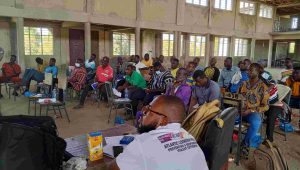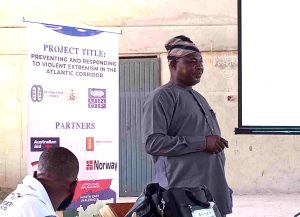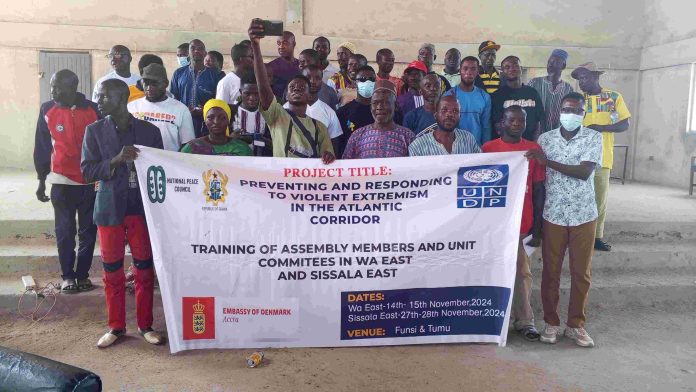The Upper west regional peace council in partnership with UNDP Ghana with funding from government of Norway, held a two-day training session for assembly and unit committee members in the Wa East district to help them understand violent extremism, the importance of community – level prevention and how to align their efforts with national strategies outlined in the national framework for preventing and countering violent extremism and terrorism.
Mr. Cliford A. Tampuori, the executive secretary of the upper west regional peace council, in his welcome address said, preventing violent extremism is a collective responsibility, and assembly members and unit committee members have a critical role to play in fostering resilient, and inclusive communities.
The executive secretary also mentioned that the project seeks to provide assembly members and unit committee members with an understanding of the role of women in violent conflict and violent extremism, how conflicts uniquely impact women, and the critical roles women play in peacebuilding and conflict prevention.

Mr. Wulifan K. Joseph at the department of geography faculty of social science and arts SDD UBIDS, Wa. Said, violent extremism refers to ideologies or actions that advocate for or resort to violence in pursuit of political, religious, or ideological goals.
He also stressed that violent extremism often leads to terrorist acts and poses a substantial challenge for local governance due to its effects on community safety and cohesion. Adding that it can threaten societies by disrupting social harmony, violating human rights, and destabilizing communities.

Mr. Wulifan, however encouraged the assembly and unit committee members to promote social cohesion, monitor and report potential threats, and support local economic and social initiatives.
The assembly and unit committee members expressed their gratitude to the upper west regional peace council, UNDP Ghana and the government of Norway for organizing such an important program to enlight and build their capacity on the key role they have to play in their various electoral areas to promote and maintained peace.

